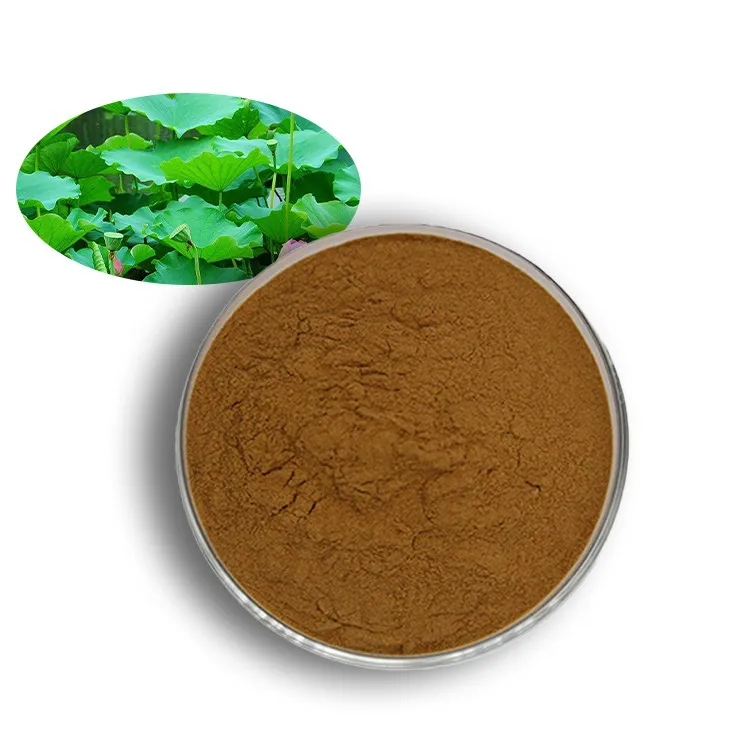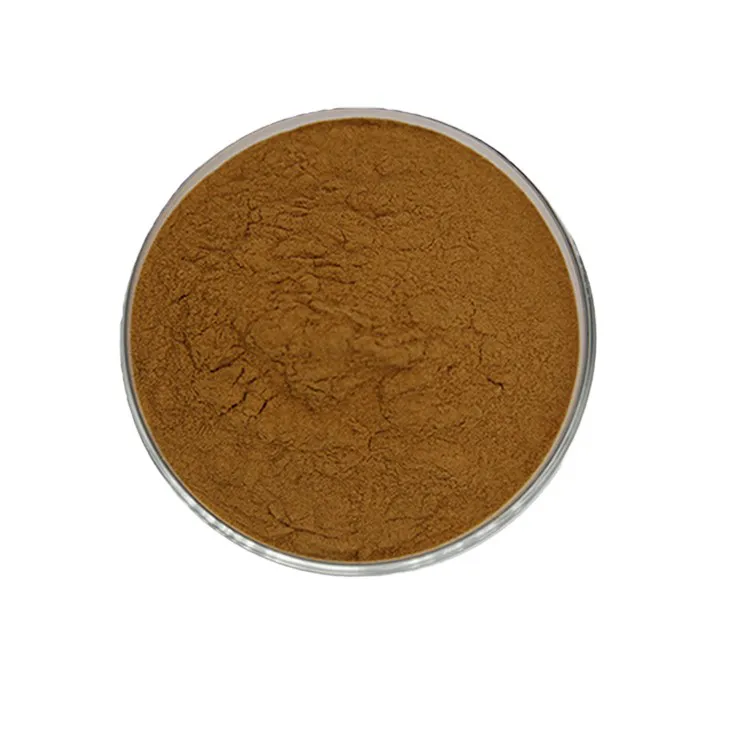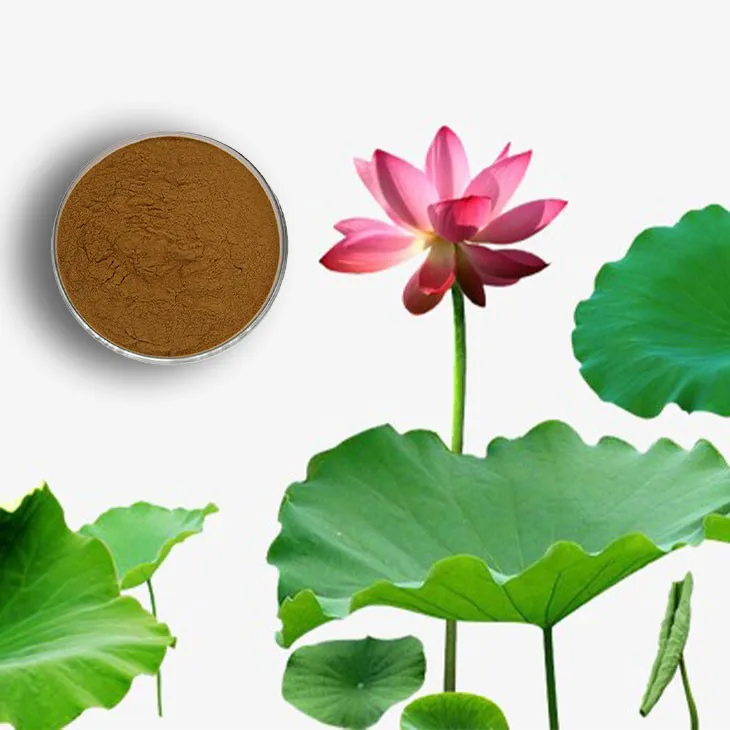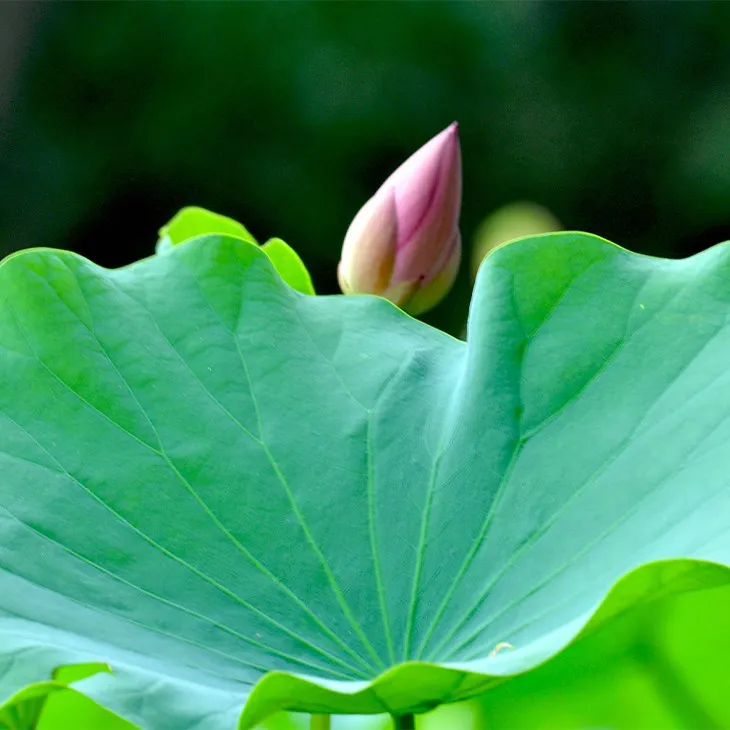- 0086-571-85302990
- sales@greenskybio.com
What is lotus leaf extract and why is it used on the skin?
2024-11-12

1. Introduction to Lotus leaf extract
Lotus leaf extract is a natural substance obtained through extraction techniques from lotus leaves. The lotus plant, known for its beauty and cultural significance in many parts of the world, has leaves that are rich in various bioactive compounds. These compounds are isolated and concentrated during the extraction process to form the Lotus leaf extract.

2. Composition of Lotus Leaf Extract
Lotus leaf extract contains a variety of components that contribute to its properties.
2.1 Flavonoids
Flavonoids are a major group of compounds present in lotus leaf extract. These are polyphenolic substances that have antioxidant properties. Antioxidants play a crucial role in protecting the skin from damage caused by free radicals. Free radicals are unstable molecules that can cause oxidative stress in the skin, leading to premature aging, wrinkles, and other skin problems. Flavonoids in lotus leaf extract can neutralize these free radicals, thereby helping to maintain the skin's health and youthful appearance.
2.2 Alkaloids
Alkaloids are another important component. They have been studied for their potential biological activities. Some alkaloids may contribute to the anti - inflammatory properties of lotus leaf extract. Inflammation on the skin can be caused by various factors such as environmental pollutants, allergens, or skin infections. By reducing inflammation, lotus leaf extract can help soothe irritated skin and promote skin healing.
2.3 Triterpenoids
Triterpenoids are also found in lotus leaf extract. These compounds are known for their various biological functions. In the context of skin application, they may be involved in regulating the skin's lipid metabolism. The skin's lipid barrier is crucial for maintaining moisture and protecting against external harmful substances. Triterpenoids can help in maintaining the integrity of this lipid barrier, which in turn helps in keeping the skin healthy.

3. Reasons for Using Lotus Leaf Extract on the Skin
There are multiple reasons why lotus leaf extract is used on the skin.
3.1 Moisture Retention
One of the key benefits of lotus leaf extract for the skin is its ability to enhance moisture retention. The skin's moisture content is essential for its smoothness, elasticity, and overall health. Lotus leaf extract forms a thin, protective layer on the skin's surface. This layer acts as a barrier, reducing the rate of moisture loss from the skin. This is especially important in dry environments or for individuals with dry skin types. For example, in winter when the air is dry, using products containing lotus leaf extract can help keep the skin hydrated and prevent it from becoming rough and flaky.
3.2 Whitening Effects
Another significant reason for using lotus leaf extract on the skin is its potential whitening effects. Skin pigmentation, often caused by an overproduction of melanin, can lead to uneven skin tone. Lotus leaf extract can inhibit the production of melanin to a certain extent. It does this by interfering with the enzymatic processes involved in melanin synthesis. By reducing melanin production, it can help brighten the skin tone and reduce the appearance of dark spots and hyperpigmentation. However, it should be noted that the whitening effect is usually a gradual process and may vary from person to person depending on factors such as skin type and the severity of pigmentation problems.
3.3 Anti - Allergy Functions
Lotus leaf extract also has potential anti - allergy functions, which make it very useful for those with sensitive skin. Sensitive skin is more prone to allergic reactions when exposed to various external factors such as cosmetics, pollen, or certain foods. The anti - allergic properties of lotus leaf extract can help reduce the risk of allergic reactions on the skin. It may work by modulating the immune response on the skin, preventing the over - activation of the immune system that leads to allergic reactions. For example, if a person with sensitive skin uses a skincare product containing lotus leaf extract, they may experience less redness, itching, and swelling compared to using a product without this ingredient.

4. Methods of Application of Lotus Leaf Extract on the Skin
There are different ways in which lotus leaf extract can be applied to the skin.
4.1 Skincare Products
- Moisturizers: Many moisturizers now contain lotus leaf extract. These are designed to hydrate the skin and provide long - lasting moisture. When applied, the extract in the moisturizer forms the protective layer on the skin, as mentioned earlier, to prevent moisture loss.
- Whitening Creams: Whitening creams with lotus leaf extract are popular for those looking to improve their skin tone. These creams are typically used on areas with hyperpigmentation, such as the face, hands, and neck. Regular use can gradually lighten dark spots and even out the skin tone.
- Sensitive Skin - Friendly Products: For individuals with sensitive skin, there are skincare products specifically formulated with lotus leaf extract. These products are often hypoallergenic and aim to soothe the skin, reduce redness, and prevent allergic reactions.
4.2 DIY Skin Treatments
Some people also prefer to use lotus leaf extract in DIY skin treatments. However, it is important to note that proper precautions should be taken.
- Face Masks: A simple lotus leaf extract face mask can be made at home. One can mix the extract with other natural ingredients such as honey and yogurt. Honey has antibacterial properties, and yogurt contains lactic acid, which can exfoliate the skin gently. The combination of these ingredients with lotus leaf extract can provide a nourishing and beneficial treatment for the skin.
- Toner: A lotus leaf extract toner can be prepared by diluting the extract with water. This toner can be used to cleanse the skin and tighten pores. However, it is crucial to ensure that the extract is properly diluted to avoid any potential irritation.

5. Safety Considerations
While lotus leaf extract has many potential benefits for the skin, there are also some safety considerations.
5.1 Allergic Reactions
Although lotus leaf extract has anti - allergy properties, in some rare cases, individuals may still be allergic to it. Before using any product containing lotus leaf extract, it is advisable to do a patch test. This involves applying a small amount of the product on a small area of the skin, usually on the inner forearm, and waiting for 24 - 48 hours to see if there is any allergic reaction such as redness, itching, or swelling.
5.2 Quality and Purity of Extract
The quality and purity of the lotus leaf extract used in skincare products can vary. It is important to choose products from reliable manufacturers. Low - quality or impure extracts may contain contaminants that can be harmful to the skin. Reputable manufacturers usually follow strict quality control procedures to ensure the safety and effectiveness of their products.
6. Conclusion
In conclusion, lotus leaf extract is a natural ingredient with a variety of beneficial properties for the skin. Its composition, including flavonoids, alkaloids, and triterpenoids, contributes to its antioxidant, anti - inflammatory, and skin - regulating functions. The reasons for using it on the skin, such as moisture retention, whitening effects, and anti - allergy functions, make it a valuable ingredient in skincare products. However, proper safety considerations, including patch testing and choosing high - quality products, should be taken to ensure its safe and effective use. With further research, lotus leaf extract may continue to gain popularity in the field of skincare and potentially offer even more benefits for different skin types and conditions.
FAQ:
Q1: How is lotus leaf extract made?
Lotus leaf extract is made through extraction processes from lotus leaves. These processes typically involve using solvents or other techniques to isolate and concentrate the active components present in the lotus leaves.
Q2: Can lotus leaf extract be used by all skin types?
Generally, lotus leaf extract can be used by different skin types. For dry skin, it helps with moisture retention. For those with sensitive skin, its potential anti - allergy functions can be beneficial. However, as with any skincare ingredient, it's advisable to do a patch test first to ensure there are no adverse reactions.
Q3: How does lotus leaf extract enhance skin's moisture retention?
Lotus leaf extract forms a thin protective layer on the skin. This layer acts as a barrier, preventing the escape of moisture from the skin, thereby enhancing the skin's moisture - retaining ability.
Q4: How effective is lotus leaf extract in whitening the skin?
While lotus leaf extract can inhibit melanin production to a certain extent, its whitening effect may vary from person to person. It is not a substitute for more aggressive whitening treatments but can contribute to a gradual brightening of the skin tone over time with regular use.
Q5: Are there any side effects of using lotus leaf extract on the skin?
Most people tolerate lotus leaf extract well on the skin. However, in rare cases, some individuals may experience mild irritation or allergic reactions. As mentioned before, it's always a good idea to do a patch test before full - scale use.
Related literature
- The Benefits of Plant Extracts in Skincare: A Focus on Lotus Leaf"
- "Lotus Leaf Extract: Properties and Applications in Dermatology"
- "Skin - friendly Natural Extracts: Understanding Lotus Leaf Extract"
- ▶ Hesperidin
- ▶ Citrus Bioflavonoids
- ▶ Plant Extract
- ▶ lycopene
- ▶ Diosmin
- ▶ Grape seed extract
- ▶ Sea buckthorn Juice Powder
- ▶ Fruit Juice Powder
- ▶ Hops Extract
- ▶ Artichoke Extract
- ▶ Mushroom extract
- ▶ Astaxanthin
- ▶ Green Tea Extract
- ▶ Curcumin
- ▶ Horse Chestnut Extract
- ▶ Other Product
- ▶ Boswellia Serrata Extract
- ▶ Resveratrol
- ▶ Marigold Extract
- ▶ Grape Leaf Extract
- ▶ New Product
- ▶ Aminolevulinic acid
- ▶ Cranberry Extract
- ▶ Red Yeast Rice
- ▶ Red Wine Extract
-
Yellow Pine Extract
2024-11-12
-
Red Wine Extract
2024-11-12
-
Lily extract
2024-11-12
-
Scutellaria Extract
2024-11-12
-
White Peony Extract
2024-11-12
-
Coconut Water Powder
2024-11-12
-
Tinospora cordifolia extract
2024-11-12
-
Mango flavored powder
2024-11-12
-
Peppermint Extract Powder
2024-11-12
-
Cranberry Extract
2024-11-12





















